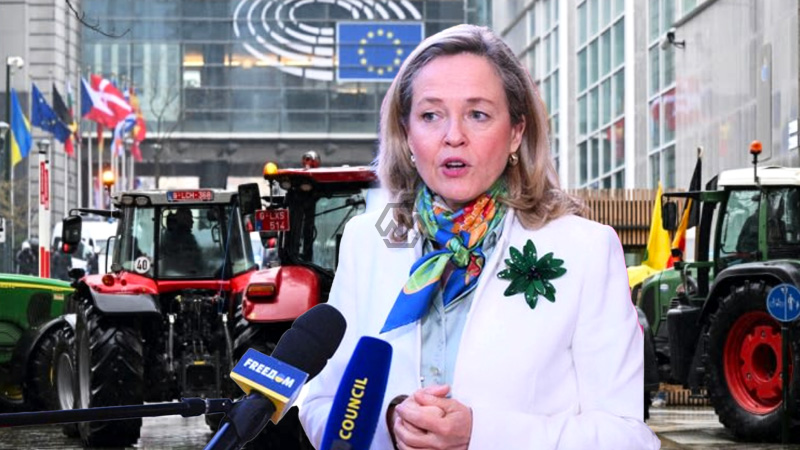- EU to enforce stricter import standards, banning hazardous pesticides.
- Reforming agricultural subsidies to benefit small and young farmers.
- Move may spark trade tensions, especially with the U.S. and Mercosur nations.
The European Commission’s upcoming agricultural policy review aims to protect EU farmers from unfair competition while addressing environmental concerns.
Beyond stricter import rules, the EU plans to revamp its Common Agricultural Policy (CAP), shifting subsidy distribution to favor small-scale and environmentally responsible farmers.
EU’s Agriculture Overhaul: Stricter Imports & Subsidy Reform
The EU’s push for stricter food import regulations stems from ongoing farmer discontent over regulatory burdens and competition from cheaper, lower-standard imports. By banning hazardous pesticides found in imported products, the EU aims to ensure a level playing field and protect consumer health. However, the lack of a clear timeline or list of affected products raises uncertainty.
Another significant shift is the EU’s proposed reform of its CAP subsidies, which currently prioritize large-scale farms. The new approach seeks to allocate funds based on need, directing more support toward small and young farmers, as well as those engaged in environmental preservation. This move has been praised by environmental groups but could face resistance from powerful agricultural lobbies.
Trade relations could also be affected, with reports suggesting that U.S. soybean imports might be targeted under the new policy. This could lead to retaliatory tariffs, especially given existing trade tensions. The EU’s trade deal with Mercosur countries has also faced criticism from European farmers, who fear an influx of cheaper agricultural products.
Additionally, the review addresses Europe’s reliance on imported fertilizers, particularly from Russia, highlighting the EU’s broader goal of reducing supply chain dependencies. The policy shift indicates a strategic effort to boost self-sufficiency in the agricultural sector while balancing economic and environmental priorities.
The EU’s new agricultural policies signal a major shift in trade and subsidy structures, aiming to protect local farmers while enforcing higher environmental standards. However, potential trade disputes and domestic opposition could challenge their implementation.
“A nation that destroys its soils destroys itself.” – Franklin D. Roosevelt.



